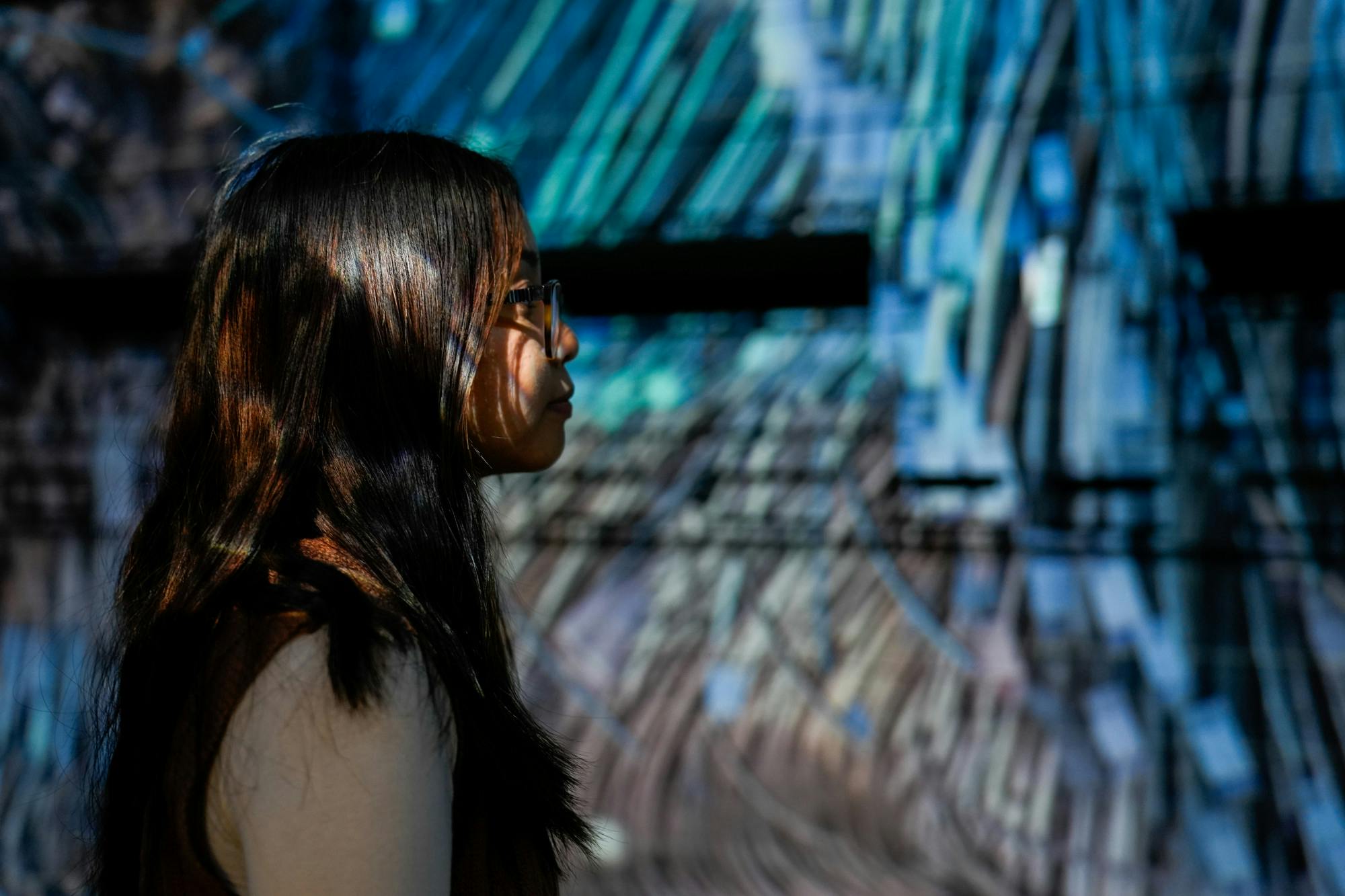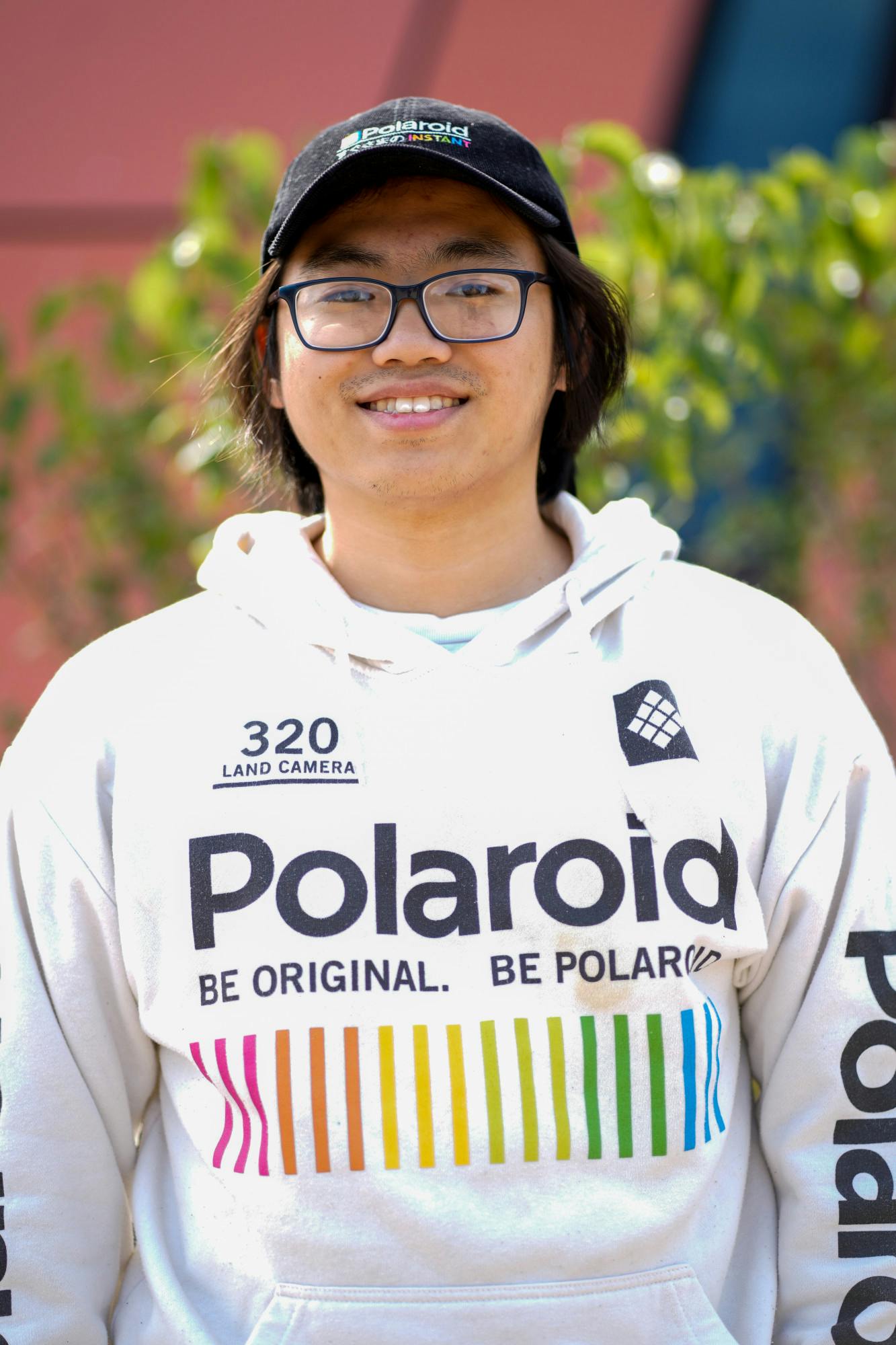Isolation in STEM fields
For students like animal science sophomore Sophia Yabut, many of her extended family work in the STEM field as nurses, doctors or engineers.

Isolation in STEM fields
For students like animal science sophomore Sophia Yabut, many of her extended family work in the STEM field as nurses, doctors or engineers.
Growing up, her parents didn’t mind what she studied, but she felt pressure from her extended family because they didn’t see non-STEM majors on the same level.
These experiences aren’t just limited to the classroom. Yabut, the only person of color on the Pre-Vet Medical Association’s, or PVMA’s, executive board, discussed the lack of diversity both in her field and executive board.
“It kind of takes a toll on me sometimes, because I feel like our leadership is not representing what veterinary medicine is entirely,” Yabut, a fundraising co-chair for PVMA, said.
Yabut said the majority of students in veterinary medicine are white. A times, she believes that she has to prove herself more.
"I don’t want to be discriminated against because I’m different from the majority of people in the field I’m going into,” Yabut said. “I just want to have the same opportunities that a white person would have.”
Coming from a first-generation student’s perspective, physics junior Jordyn Bradley felt some pressure to go to school with a degree that had more job security because her parents didn’t get that same opportunity.
Being a person of color in STEM, Bradley expressed similar sentiments, noting that such isolation can also serve as an internal drive.
“I do feel different from some of the other people and e-board in general,” Bradley said. “But it actually makes me want to lead more because I know how important it is to have someone represent you that looks like you.”
As a Black student, Bradley worries she’ll have trouble gaining trust from her white colleagues because they may doubt her abilities. In her college classes, she’s also experienced microaggressions as a woman of color.
“There was one incident when I had difficulty with a section in my class, just reviewing the material,” Bradley said. “I was told I should just change my major to something easier and that I could just go into a social science because that was more fitting for me.”
Computer science senior Clarence Nanamori, who is a Vietnamese American, felt similar stereotypical standards when compared to his peers.
“Growing up, I always had kind of a mild insecurity about that Asians have to be good at math because, frankly, I’m very average, I feel, when it comes to it,” Nanamori said.
Growing up and coming to MSU, Nanamori said he didn’t see many leaders or workers in higher-level management that were people of color, and they were oftentimes overlooked when it came to those positions.

Similarly, human biology sophomore Ellen Kim feels the stereotype that “all Asians are smart” has excluded her from having basic conversations with other peers and adults.
“Whenever I meet someone and I introduce myself, … everyone I meet kind of just assumes that I am pre-med and that I have no problem,” Kim said. “(They assume) I’m not struggling with my coursework or I’m not struggling with other extracurriculars that I’m doing. They just assume I can do it … because I’m Asian.”
Drive to make a difference
Support student media! Please consider donating to The State News and help fund the future of journalism.
However, for students like computer science senior Akhil Tatineni, who rushed Triangle Fraternity, a social STEM fraternity, being a minority hasn’t hindered him from leading as the rush and recruitment chair, he said.
“I just feel like it was a normal, everyday thing,” Tatineni said. “With this year’s program, we have been a very, very diverse field, more than we’ve ever had before, with people coming from many different countries.
Meanwhile, computer science sophomore Sidharth Rao used the stereotype to discover how he likes helping others.
Rao, who is an Indian American, has been asked by others for his homework countless times in high school but said he felt terrible when he didn’t have an answer. Now, he said he thinks it's a good stereotype and tries his best to help those that ask.
For computer science sophomore Jennifer Lee, her career aspirations remain unaffected as a minority in STEM.
“I haven’t really gotten to work with a lot of white people so, I don’t think I was really discriminated against,” Lee, who is Korean American, said. “So maybe in the future … I will be, but I don't think so because I feel like this generation (has) a more positive outlook on minorities.”
Some students are genuinely passionate and strongly interested in STEM’s increasingly quick evolution. Due to this, possible discrimination doesn’t deter them.
“I have grown side-by-side (with) how technology has evolved throughout the years, and I think that has been a source of inspiration for me to study computer science,” computer science and math junior Gabriel Sotelo Justo said. “I think it’s really empowering (for) people to achieve a lot through so little.”
Federal regulations make it more difficult for international students to find internships or jobs in the U.S. compared to domestic students. However, Sotelo Justo, an international student from Peru, believes he was able to stand out with his accomplishments and achievements.
“I think I’ve been lucky enough to get internship offers,” Sotelo Justo said. “Even though it’s a concern for all international students, whether we can get a sponsorship or not, to stay or find a permanent job in the United States, … I have seen, at least from my perspective, it’s possible with effort and hard work.”
Advice for minority students in STEM
For those that don’t have strong support systems, chemical engineering fifth-year Nathaniel Pascual recommends turning to some of the many student organizations that MSU offers.
“Reach out to groups that are doing work that are somewhat related to you,” Pascual said. “There are a bunch of groups that are able to provide that support for family members that aren’t able to provide.”
To stay connected to their culture and foster camaraderie, Yabut advises searching for student groups that align with their background and interests.
For international students, Sotelo Justo understands it’s daunting to come to a new country and leave everything behind, but said that hard work could make up for the unfairness and lack of opportunities in professional fields.
“There’s so many different builds of STEM and definitely see what would work for you and don’t get discouraged despite what other people may say,” Bradley said. “Or even if the classes are hard, you’ll find other students who can support you, no matter what.”
This story was featured in our STEM edition. Read the full issue here.